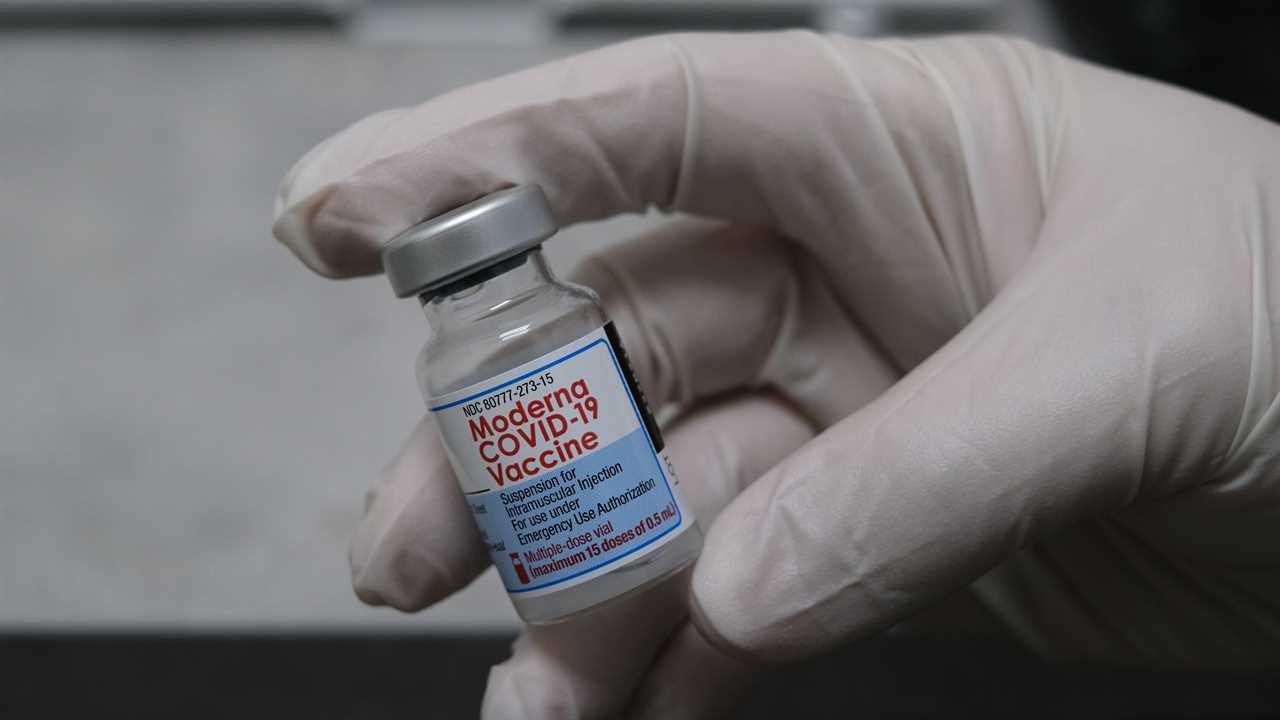
In documents released Tuesday morning, Moderna argued that the Food and Drug Administration should authorize a half-dose of its coronavirus vaccine as a booster shot for recipients at least six months after the second dose, citing evidence that the vaccine’s potency against infection wanes over time.
Moderna cited the rate of breakthrough infections, “real world evidence of reduced effectiveness against the Delta variant,” and falling levels of neutralizing antibodies from its vaccine six to eight months after a second dose. The company said its clinical trial studies showed that a third injection boosted antibody levels — one measure of the immune system’s response — higher than what they had been before the second dose.
The documents were released by the F.D.A. ahead of a two-day meeting of the agency’s outside advisory committee, scheduled for Thursday and Friday. In its own briefing document for the committee, also released Tuesday, the F.D.A. summarized the data without taking a position.
The committee is expected to vote on whether to recommend emergency authorization of booster shots of both Moderna’s and Johnson & Johnson’s vaccines. While the panel’s votes are not binding, regulators typically follow them.
Moderna did not try to argue that its vaccine is waning now against severe disease or hospitalization, and the existing data does not appear to support that claim. That distinguishes Moderna’s application from the one mounted by Pfizer-BioNTech last month. In its briefing document, the F.D.A. said: “Some real world effectiveness studies have suggested declining efficacy of Moderna Covid-19 vaccine over time against symptomatic infection or against the Delta variant, while others have not.”
The agency said “there are many potentially relevant studies” and it has not independently reviewed the underlying data or conclusions of each one. Overall, however, it said the data show Moderna and the other vaccines “still afford protection against severe Covid-19 disease and death in the United States.”
The F.D.A. and the Centers for Disease Control and Prevention decided to authorize emergency use of boosters for many but not all Pfizer-BioNTech vaccine recipients. The eligible include those who are 65 or older, those who live in long-term care facilities, have underlying medical conditions or are at higher risk of exposure to the virus because of their jobs or institutional settings. The last group includes health care workers, teachers and prisoners.
In the document released Tuesday, the F.D.A. proposed the outside experts consider essentially the same eligibility groups for Moderna recipients. But people familiar with the deliberations said that federal officials may also ask the committee to consider broadening eligibility for booster shots of both vaccines to include more middle-aged people.
Several independent studies have tried to estimate how long Moderna’s two-dose vaccine remains effective against mild, moderate and severe Covid-19. One looked at Covid-19 cases last summer among more than 15,000 volunteers in Moderna’s clinical trial, some of whom had been vaccinated a full year earlier. Researchers compared cases of Covid-19 in July and August among trial participants who had been fully vaccinated between July and October 2020 with cases among those who were fully vaccinated between December 2020 and March 2021.
Those who got vaccinated later had a 36 percent lower rate of Covid disease. But Dr. Hana M. El Sahly, a professor of molecular virology at Baylor College of Medicine and one of the lead researchers, said the study did not find a statistically significant difference between the two groups in cases of severe Covid — of which there were only 19.
Overall, she said, “the findings do not indicate that a booster is needed.” The study was backed by the National Institutes of Health, researchers said.
Another recent study by the C.D.C. reviewed the case files of nearly 3,700 patients in 21 different hospitals from March to August. Researchers found that Moderna’s vaccine held up better over six months than either Pfizer’s or Johnson & Johnson’s.
The researchers said that Moderna was 93 percent effective against hospitalization, compared with 88 percent for Pfizer and 71 percent for Johnson & Johnson. Pfizer’s efficacy against hospitalization dropped significantly four months after the second shot, to 77 percent, while Moderna’s basically held steady, they said.
Given the dearth of data showing that Moderna’s protection weakens against severe disease over time, the advisory committee’s deliberations about booster shots for Moderna recipients will likely to revolve around three central questions.
Is there a need to “harmonize” the country’s booster strategy, making recipients of all three vaccines eligible for extra shots even if they keep their potency for different periods of time? Some federal officials argue that with many recipients of the Pfizer-BioNTech vaccine already receiving boosters, the answer is yes.
Another question is whether research findings that Pfizer’s vaccine wanes in effectiveness against severe Covid mean that Moderna’s vaccine will do the same? Some advocates of extra shots believe that the potency of Moderna’s vaccine will weaken against severe disease — just not as early as Pfizer’s, because the initial Moderna dosage is significantly stronger and the interval between the first and second shot is longer.
Finally, should Moderna recipients be given a booster to protect them against the risk of mild or moderate disease, or to try to disrupt transmission of the virus, even if the data suggests its recipients do not need boosters for protection against severe Covid?
“The fundamental issue is, what are we trying to do?” said Dr. El Sahly. “Both Moderna and Pfizer seem to have waned when it comes to mild to moderate disease, especially with the Delta variant. So, if that’s the goal, a booster is needed. If we want to prevent only severe disease that lands people in the hospital, that’s a different mathematics.”
Did you miss our previous article...
https://trendinginthenews.com/usa-politics/we-suffer-while-you-debate-many-fear-being-left-behind-as-democrats-trim-spending-bill






